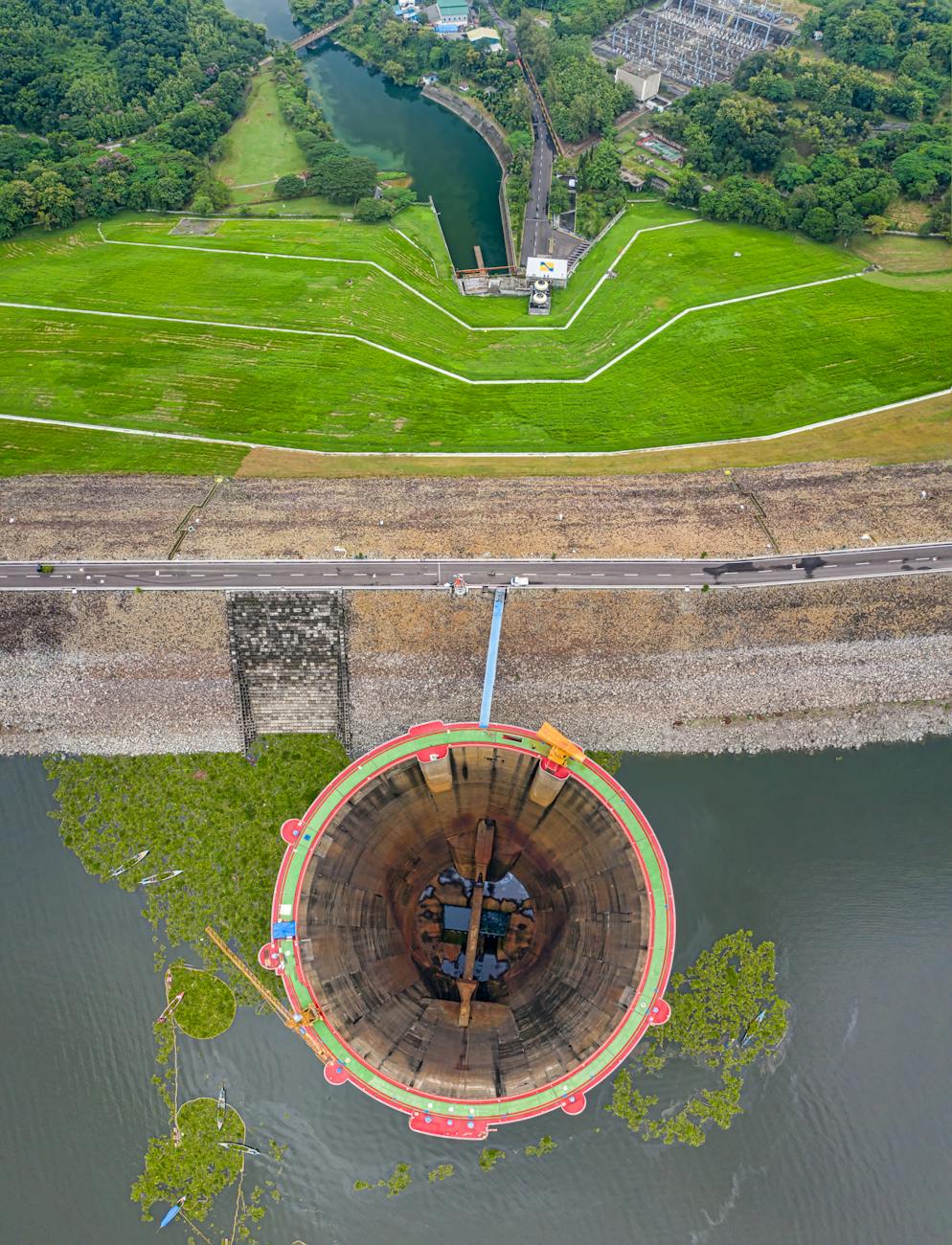Nate Silver, in his new book On the Edge: The Art of Risking Everything, creates a geographical metaphor to describe two different types of people with two different modes of thinking.
Nate lays out a geography of “The River”[1] as follows:
- “I think of the River as having several subregions. …I imagine Upriver as being like Northern California with its major research universities, rolling hills, and ocean views—but also eccentric and aloof, not quite fitting in with the rest of the country. The clearest manifestations of Upriver today are in two related intellectual movements, rationalism and effective altruism.
- “…Further downstream, you’ll find what I call Midriver, which I picture as having lots of tall, angular buildings, as Manhattan does. This is where people apply the EV maximizer skill set to make lots of money, such as through venture capital and hedge fund investing. There’s more in this book on Silicon Valley than on Wall Street, though.
- “…Then there’s Downriver…. I imagine Downriver as Las Vegas meets New Orleans: lots of tourists and lots of gambling.
- “…Finally, there’s the Archipelago, which I envision as a series of offshore islands adjacent to Downriver where pretty much anything goes. …[T] here is still a lot of gray-market off-the-books gambling activity in online poker, sports betting, and cryptocurrency. Sophisticated gamblers know to avoid the Archipelago—but it lies in wait to pick off the weakest of the herd.”
He finishes with: “The people in the River are my tribe—and I wouldn’t have it any other way.”
Nate clearly delights in what he calls “The River,” and spends a lot less time describing the other side of the divide, what he calls “The Village.” (Reminds me a little of someone’s observation that while depictions of hell are among the greatest and most vivid artistic creations of humankind, depictions of heaven are almost universally kind of boring.)
He and the “Riverians” he identify with see “The Village” thusly:
- “I think of the Village as a midsized city, like Washington, D.C., or Boston, the sort of place that’s just small enough where everyone knows one another and is a little self-conscious about it. It consists of people who work in government, in much of the media, and in parts of academia (although perhaps excluding some of the more quantitative academic fields such as economics). It has distinctly left-of-center politics associated with the Democratic Party.
- “… [According to Riverians, V]illagers are ‘too political.’ … the Village’s claims to academic, scientific, and journalistic expertise are becoming increasingly hard to separate from Democratic political partisanship….
- “Riverians also think that Villagers are too conformist and not aware of the degree to which their views are influenced by confirmation bias and political and social fads within their communities. …Riverians worry that Villagers are stifling competition by increasingly focusing on equity of outcomes rather than equality of opportunity.
- “And naturally, Riverians think Villagers are too paternalistic, too neurotic, and too risk-averse. ”
He does go on to lay out “The Village’s” case against “The River,” to his credit. But it is clear where his sympathies lie, as he openly states. And as he also openly states, “[B]oth communities consist of a small number of elites that have little in common with the median American voter.”
I have a number of objections to Nate’s dichotomizing of American society in this way. First, prominent “Riverians,” such as Elon Musk and Peter Thiel, advocate for right-of-center Republican political causes every bit as avidly as any “Villager” advocates for Democratic causes. Increasingly, members of even of disparate regions of “The River” – such as Joe Rogan and Elon Musk – know one another and interact (although they seem not at all self-conscious about it). Academia, as I have said, has tended in a far more “Riverian” direction the last few decades, and seemingly anti-liberal academic institutions such as George Mason University and numerous think tanks such as the Heritage Foundation have grown up to fight against liberal causes. Increasing numbers of graduates of Liberty University and similar hard-right schools rub elbows in the Capitol with Ivy Leaguers.
But none of this quibbling really conveys my real objection to Nate’s dichotomy. Because, for one thing, he is right: “The River is winning.”
So I need to propose an alternative metaphor. And that metaphor is oncological.
The “River,” the numbers-driven, odds-driven, predictive, Bayesian approach to all things, is like a cancer that is metastasizing through our society.
What is a cancer?
It is a growth. Growth is often good. We would not exist without it. But uncontrolled growth, in areas of the body in which such growth is inappropriate, can be very bad, and even fatal.
A cancer is something that colonizes a portion of the body and takes it over, hijacking the legitimate functions of the organs in question and mindlessly multiplying itself without regard to its usefulness in its new context. It has one formula, and it will replicate that formula come hell or high water, until either its host is dead, or its progress can be arrested through outside intervention.
Consider the three major areas comprising “The Village,” according to Nate: academia, the media, and government.
- Academia is, as I have said above, increasingly fixated on the rewards to be had by completely reorganizing its mission to serve “The River.” More and more kids today either want to go to Wall Street and make millions, or to go to Silicon Valley and make billions. The number of humanities majors has dwindled to such a degree that universities are considering closing departments. The vast majority of new buildings built on campuses are either STEM-related or business- (often finance-) related. The academy is now a temple of algorithms and predictive science – even in the History and Literature departments.
- The media has abandoned its former place as a vocation and has now become a purely for-profit entity. Eyeballs, clicks, emotional engagement are the criteria now, and Riverian types are firmly in charge. They also are driven by algorithms and prediction, but their predictive targets are the next attention-grabbing rage – or outrage.
- Government is, more than ever, a whipping boy for everyone else. It is assumed to be disorganized – today, allegedly in need of Elon Musk’s oversight to reduce inefficiencies. Its critics demand that it never make a mistake, while decrying any effort by its leaders to promulgate any sort of inspiring future vision.
Each of these areas once was thought to have a higher calling. Now, The River is taking them over, and any higher calling they used to have has been jettisoned, and they are each seen essentially as engineering problems.
But the Cult of Prediction that infuses The River cannot imagine higher callings. It is about prognostication and optimization – funding, profit, efficiency. Mission is outside the River’s bailiwick; in fact, the River thinks talk of mission or higher calling is baloney. Game theory is everything – even though these three areas are not supposed to be games, and their “rules” change constantly. (This last fact merely causes their Riverian critics to redouble their accusations of “hypocrisy” and “neuroticism” and “lack of logic.”)
So these three areas – academia (formerly the ivory tower), media (formerly journalism – remember that vocation?), and government (formerly public service – remember JFK? anyone?) are all suffering severe identity crises simultaneously. And it’s because they are all being colonized by the River Tumor.
I talk a lot about this phenomenon in my book Fatal Certainty. When the tumor of (usually) quantitative arrogance begins to take over a body public, imagination is denigrated and a broader, longer vision of reality and the future is almost always heaved overboard in favor of short-term, engineering-driven profit optimization and efficiency. This works right up until a huge event arises from out of left field, the tumor kills the host, and the company, nation, society, or culture is overthrown.
What does the “River winning” look like?
It does not look like a healthy society. What does the progression of this cancer look like?
- Gaming and gambling, which certainly gets counted in GDP, but which by definition does not increase the productive capacity of the nation, squeezes out things that might provide for a more sustainable long-term economy.
- Eyeballs are pegged to screens in order to increase profits; families drift apart; communities shrivel as citizens “Netflix and chill” at home; democracy becomes a societal nervous breakdown of atomized unconnected individuals connecting only on-line; city centers empty out; individual physical health often deteriorates.
- More and more wealth goes to fewer and fewer people: people who are stranger, more sure of their special status, more willing to harm millions they will never meet, and to destroy centuries-old political and governmental systems that enrage them by attempting to constrain their utter impunity.
- These few successfully “decouple” morality from profit, democracy from law, republican principles from personal gain, and maximize the broken-apart pieces in order to please themselves.
- Things like AI look likely to accelerate all these trends, removing the basis of livelihood for the many in order to further enrich the very very few; when society begins to blow apart in unexpected ways, these few, these happy few, this band of techbros, can simply fly out to Costa Rica or New Zealand.
Yes, the River is winning.
Better call in the doctors.
[1] All excerpts from Nate Silver, On the Edge, https://books.apple.com/us/book/on-the-edge/id6474822705



